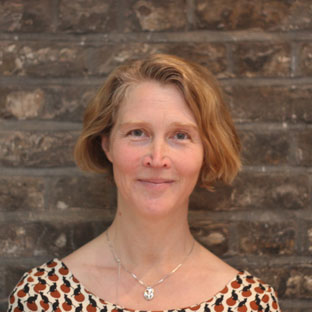It has been an enormous pleasure to spend the first couple of days of term joining INSET days at schools across the RSA Family of Academies to launch our Comprehensive Approach to Mental Health in Schools programme, in partnership with the Pears Foundation.
Through this programme all staff who come into contact with pupils – including midday meals supervisors and office staff as well as teachers and teaching assistants – will receive training on identifying and providing first line support to children with mental health difficulties. Teachers training with the RSA Academies Teaching School Alliance will also have a module on mental health as part of their initial teacher education. The whole programme is being designed in collaboration with the schools and under the guidance of an advisory panel including experts in this area such as Place 2 Be and Young Minds. It will be independently evaluated by the Anna Freud Centre.
The introductory sessions this week have focused on the extent to which today’s children and young people are experiencing mental health difficulties, approaches to identifying children and creating an environment where children feel supported, and the importance of looking after the mental health and well-being of our staff.
Statistics in this area drawn from the Health Committee enquiry into Children and Adolescent Mental Health Services (CAMHS) in 2014 indicate that one in ten children aged between 5 and 16 years has a mental disorder. Furthermore around 30% of English adolescents reported a level of emotional wellbeing considered as (sub-clinical) "low grade" poor mental health, that is they regularly (at least once a week) feel low, sad or down.
The baseline data for the secondary schools in the RSA Family of Academies is in line with this national data, with between a quarter and a third of pupils showing signs of difficulties in a range of areas, including emotional problems, conduct problems or difficulties with peer relationships. We also have been able to glean information from primary aged pupils, which suggests that around 15% of pupils (roughly one in seven) has some level of emotional or behavioural difficulty.
The World Health Organisation defines mental health as:
- A state of well-being in which the individual realises his or her own abilities, can cope with the normal stresses of life, can work productively and fruitfully, and is able to make a contribution to his or her own community.
Emotional well-being is described by the National CAMHS Support Service as:
- A positive state of mind and body, feeling safe and able to cope, with a sense of connection with people, communities and the wider environment.
For children, therefore, good mental health is a precondition for learning and thriving. This means it is everyone’s business, not just for the SENCO (special educational needs co-ordinator), a point emphasised through the sessions. Teachers cannot and should not be expected to replace the professionals and support services such as CAMHS, Sure Start Children’s Centres, and youth services that have done so much to support some of the more vulnerable children and their families and that have been so significantly cut away. But all adults working in school have a part to play in creating an atmosphere that promotes positive mental health by:
- Recognising that challenging behaviour is often a manifestation of mental health difficulties, and responding accordingly;
- Taking an interest in their pupils lives and achievements, including those beyond narrow academic successes;
- Providing opportunities for pupil voice and involvement in the school and the classroom, taking care to ensure to encourage participation from all pupils;
- Recognising the risk factors and triggers for mental health difficulties, and sharing information about early warning signs with appropriate colleagues in school.
To achieve this it is essential that our schools also prioritise the mental health and well-being of all staff. Just as the pressures on pupils today have never been greater – it seems that barely a day goes by without another article highlighting the ways in which 21st century life is creating challenges for our children and young people – so are the pressures increasing on teachers.
It is easy to get into a negative and depressing discussion about the demands of teaching that can impact negatively on mental health. In our sessions this week we have sought to acknowledge the pressures whilst identifying positive strategies and tactics to help. Doing work we believe in and that fits with our personal values is a strongly protective factor for good mental health. Research has consistently shown that this belief in the value of what they do that is a particular driver for those that choose to teach, beyond the financial rewards, or the holidays. Staff at the RSA Family of Academies were therefore asked to think about and write down #whyIteach, giving their personal reasons for teaching, and to hold onto these (literally and metaphorically!), for the school year ahead.
Alison Critchley is Chief Executive of RSA Academies
@Ali_Critchley
Notes
Sessions were held at Arrow Vale, Ipsley, Whitley, Church Hill and Abbeywood on 4 and 5 September. Sessions at Holyehad School and Wilkes Green Junior School will take place on 14 and 15 September, with the introductory session at the RSA Academy in early November.

Be the first to write a comment
Comments
Please login to post a comment or reply
Don't have an account? Click here to register.